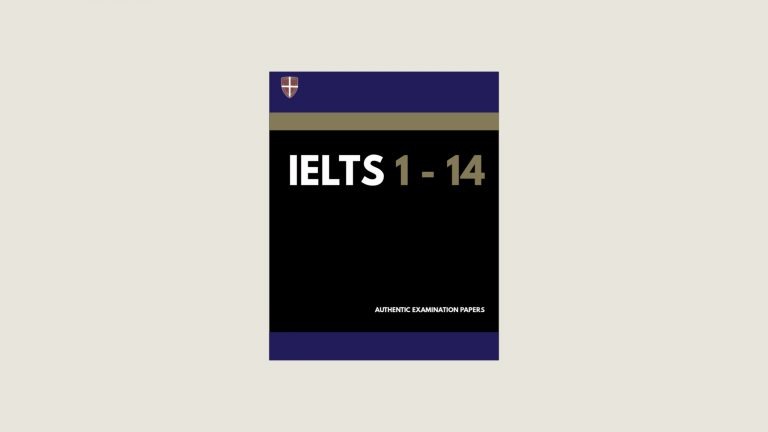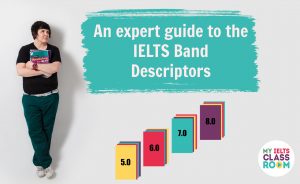
3 Most Difficult Essay Questions in the Cambridge IELTS Books
Hey! Almost every student uses Cambridge IELTS books 1 – 14 to prepare for the exam as these books offer students the chance to prepare with genuine past exam papers. However, while all of the questions in these books are from past tests, I don’t think that all the questions are equally difficult. In fact, it has become clear to me over the years that some questions are definitely trickier than others!
So, having marked more than 3,000 essays in the past 12 months, I am ready to reveal what I think are the three most difficult essay questions in the Cambridge IELTS books. I’ll tell you why they are difficult, where students go wrong, and how to make sure you address them correctly!
3rd Place: The one where students confuse the sides! 🥉
Some say that parents should encourage their children to take part in organised group activities in their spare time. Others say that it is important for children to learn how to occupy themselves on their own.
Discuss both views and give your own opinion.
So, this is an interesting question. Read it for me again and tell me what you think the two views are that you have to discuss. 99% of students believe it is this:
- Parents should organise group activities for their children
- Children should decide how they spend their time
However, these are NOT the views – the first is good, but the second is off-topic. The question says “it is important for children to learn how to occupy themselves on their own.” This does not mean that children “should make their own decisions about their free time“, but that they “should learn how to spend time ON THEIR OWN” i.e. without other people!
This is a small but important difference, especially when most students tell me that “it is good for children to choose their own group activities like football”. Do you see the problem? You can’t play football on your own! So the two sides are actually:
- Parents should organise group activities for their children
- Children should learn to play by themselves without other children
If you don’t discuss why it is important for children to learn to be by themselves, you will score a 5.0 for Task Response because your essay does not fully address the task. What does that mean? It means that it is off-topic. If you want to find out more about how your writing is marked, then why not go and download a copy of our FREE e-book, which explains how each of the four marking criteria is applied and includes the most common errors made by test-takers. Just clickherefor your copy.

2nd Place: The one where nobody understands what “practical problems” means 🥈
Living in a country where you have to speak a foreign language can cause serious social problems, as well as practical problems.
To what extent do you agree or disagree with this statement?
Actually, I see a number of different errors with this question. First, in some IELTS prompts they give you an example to help you understand the question. Take this question, for example:
Today, more and more tourists are visiting places where conditions are difficult, such as the Sahara desert or Antarctica. What are the benefits and disadvantages for people who visit such places?
Here, it clearly says “such as” before Antarctica and the Sahara, which means that you don’t have to discuss these in your essay (although you may). These examples are just there to help you understand what IELTS means by “places where conditions are difficult”.
However, in our question, there is no “such as” or “for example” before “serious social problems, as well as practical problems.” This means that you MUST discuss these points (and only these points) to address the question fully.
But, what are social and practical problems? I think social problems are easy (it’s hard to make friends in the new country, etc) but what does IELTS mean by “practical problems”?
Most students I mark for discuss work, but I think this is a mistake (especially when a lot of their paragraphs centre on communicating with colleagues, which is more of a social issue). What I understand from “practical problems” is everyday difficulties living in a country where you don’t speak the language. For example:
- renting a house, opening a bank account when you don’t understand legal language
- registering at a doctor’s surgery or just being able to describe your symptoms can be almost impossible in a second language (I know – I spent 5 days in a Spanish hospital with no idea what was happening!)
- finding it difficult to go shopping when you can’t understand the labels on the items or explain what you want to the shop assistant (it took me three months to find conditioner for my hair when I moved to Japan)
- even catching a bus or moving around a city can be hard
These are true practical problems and discussing these will get you a much higher score than discussing work!
If you are finding addressing these questions difficult, then read my blog post to make sure you aren’t making any other serious mistakes with Task Response.
Listen to Nick and I dissect 6 recent IELTS essay questions here
1st Place: The one where nobody understands the true meaning of “too many” 🥇
Some people believe that nowadays we have too many choices
To what extent do you agree or disagree with this statement?
Yes, this is by FAR the most difficult question in the Cambridge IELTS books! A student sends me an essay that “answers” this question about once a week, and every time it arrives, I almost always email it straight back to them. I fell sorry for the examiners working the week that this was the question in the real exam – I bet everybody went home and had nightmares about it!
So, what’s the problem? It is a short sentence! How can students possibly get this wrong?!
Well, it is all about the two words “too many”. Almost every student sees “many choices” and thinks, “Yes, there is a lot of choice today”, I agree. But this is NOT what the question is asking us to discuss!
The question doesn’t ask if we have A LOT of choices, which is definitely true, but if we have TOO MANY choices, which means that the amount of choice we have is a BAD thing.
That’s right, in English “too many” always means that something is BAD.
For example, if I went to a party and said:
“There are a lot of people at this party.”
This is a neutral sentence, so the number of people is neither a good or bad thing. However, if I went to a party and said:
“There are too many people at this party”
Then this means that I am complaining about the number of people. Or, in other words, that the number of people is a BAD THING (maybe there aren’t enough chairs, or food, or space to dance).
Can you see the difference? In this question, our job is not to simply agree that there are a lot of choices today (which there are) but to assess if having all of these choices is a good or bad thing.
Personally, if I was answering this question, I would agree with the statement because I think that all of this choice is having a negative impact on society. My two arguments in the body would be:
- people are overwhelmed by choice so find it hard to make a decision (or even do not make one at all)
- people are more likely to regret the decisions they do make when they have considered so many choices
If you chose to disagree, you would need to think of two reasons why all of the extra choice is positive. For example, you could say:
- people are able to choose options that 100% match their needs
- with more choice, comes more opportunities
If you simply write an essay that describes all of the different choices we have today, you are heading for a 5.0 for Task Response (like every other student!).
So, these are what I think are the 3 most difficult questions in the Cambridge IELTS books. If you have finished all 14 books and want more high-quality essay questions to use for practice, then you will find my curated 100 IELTS Essay Questions blog post invaluable!
More importantly, if you are looking for a tutor who has almost 20-years experience preparing students for the IELTS exam (and is an exam writer for universities herself), then why not come and join me in My IELTS Classroom. I promise that my lessons are like nothing you have seen before because they focus on teaching real academic English skills rather than simple “tips and tricks”!
